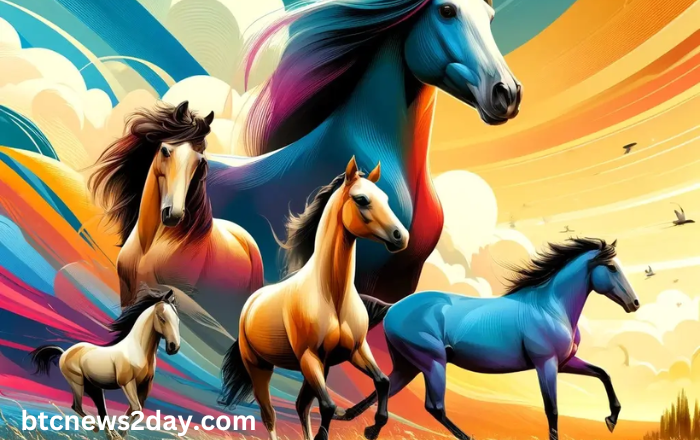Horses have long captivated human imagination and played pivotal roles in the development of civilizations across the globe. From ancient times to the modern era, these majestic creatures have been revered, utilized, and adored for their strength, grace, and companionship. This article delves into the rich history and evolution of horses, exploring how they have become indispensable companions to humanity. FranceChevalTurf offers a comprehensive platform for horse racing enthusiasts. Access expert advice, race previews, and betting tips to enhance your racing experience. Join us now!
The Dawn of the Equine Era
The evolution of horses dates back approximately 55 million years to a small, dog-sized forest dweller known as Eohippus, or the “dawn horse.” Over millions of years, these early ancestors gradually evolved, adapting to changing climates and environments. They transitioned from forest browsers to grassland grazers, developing longer legs and larger bodies to cover greater distances and escape predators.
The genus Equus, to which modern horses belong, emerged around 4 to 4.5 million years ago in North America. These early horses eventually migrated to other continents via land bridges, leading to the diverse species seen in the prehistoric eras. However, by the end of the last Ice Age, horses became extinct in North America, surviving only in Eurasia and Africa.
Domestication and Early Human-Horse Relationships
The domestication of horses is a milestone that profoundly influenced human history. It is widely believed that horses were first domesticated on the steppes of Central Asia around 4000 BCE. The Botai culture in Kazakhstan provides some of the earliest evidence of horse domestication, including traces of horse milk fats on pottery and indications of bridling.
Domesticated horses revolutionized transportation, agriculture, and warfare. They allowed for quicker movement of people and goods, the expansion of trade networks, and the rise of powerful mounted armies. In ancient civilizations such as Mesopotamia, Egypt, and later the Roman Empire, horses became symbols of wealth and power, often depicted in art and mythology.
Horses in Warfare and Work
Throughout history, horses have been integral to warfare. The introduction of cavalry units changed the dynamics of battles, offering speed and mobility unmatched by infantry. Notable horse-riding civilizations, such as the Mongols under Genghis Khan, utilized their superior horsemanship to conquer vast territories.
In addition to their military use, horses were indispensable in agriculture and transportation. They pulled plows, carriages, and wagons, facilitating the cultivation of larger tracts of land and the movement of heavy loads. The invention of the horse collar in medieval Europe increased their efficiency in farming, contributing significantly to agricultural productivity.
The Cultural Significance of Horses
Beyond their utilitarian roles, horses have held deep cultural significance. In mythology and religion, they often symbolize freedom, strength, and nobility. The Greeks revered horses in their mythology, with deities like Poseidon associated with them. The famed horse, Pegasus, is a symbol of poetic inspiration and heroism.
In literature and art, horses frequently appear as central figures. From the epic tales of Homer’s Iliad to the works of Renaissance painters like Leonardo da Vinci, horses have been depicted as loyal companions and symbols of human aspirations.
Modern Equine Companions
Today, the role of horses has shifted significantly. While they are no longer central to transportation and warfare, horses remain beloved companions and participants in various recreational and competitive activities. Equestrian sports such as dressage, show jumping, and racing highlight their agility, speed, and intelligence.
Therapeutic riding programs have also recognized the profound impact of horses on human well-being. Equine-assisted therapy helps individuals with physical, emotional, and developmental challenges, demonstrating the deep, empathetic connection humans can share with horses.
Preservation and Future of Horses
As we look to the future, the preservation of horse breeds and their habitats becomes increasingly important. Conservation efforts aim to protect wild horse populations and maintain genetic diversity among domesticated breeds. Organizations and enthusiasts worldwide work tirelessly to ensure that these majestic animals continue to thrive.
In conclusion, the history and evolution of horses reflect their remarkable adaptability and the profound bond they share with humans. From their early ancestors grazing on prehistoric plains to their roles in shaping human civilizations, horses have been steadfast companions. Their legacy continues to inspire and captivate, embodying the spirit of freedom and the enduring connection between humans and animals.
